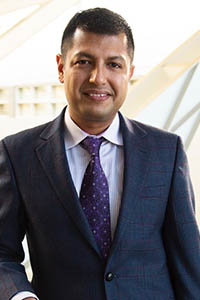
Pinaki Bose, Ph.D
Associate Professor, Departments of Biochemistry & Molecular Biology and Oncology
University of Calgary
Director, Tumour Biology and Translational Research, Ohlson Research Initiative
Arnie Charbonneau Cancer Institute
Calgary, AB
Dr. Pinaki Bose completed his Ph.D. with Dr. Karl Riabowol at the University of Calgary, investigating the role of the ING1 tumour suppressor protein in DNA damage signaling and apoptosis. After completing his Ph.D., Pinaki joined the Ohlson Research Initiative (ORI) as a postdoctoral fellow and trained in the molecular epidemiology of head and neck cancers under the supervision of Drs. Joseph Dort and Nigel Brockton. As part of a second postdoctoral fellowship, Pinaki trained at the BC Cancer Agency (BCCA) Genome Sciences Centre in cancer genomics and bioinformatics under one of the leading bioinformaticians in the world, Dr. Steven Jones. Pinaki was also a member of the personalized oncogenomics (POG) program at BC Cancer. The POG initiative administers genome-guided targeted therapies to recurrent/metastatic cancer patients.
Dr. Bose currently directs the translational research program within the ORI, a multidisciplinary head and neck cancer research initiative. The Bose lab investigates the biology of head and neck, brain and lung cancers focusing on the role of the immune system in carcinogenesis and progression.
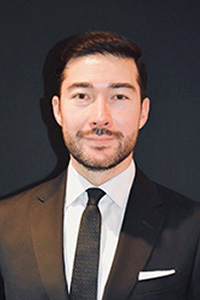
Steven Yip MD, MSc, FRCPC
Medical Oncologist
Medical Lead, Precision Oncology and Experimental Therapeutics
Chair, Southern Alberta GU Tumour Group
Clinical Associate Professor, Department of Oncology, Cumming School of Medicine
Staff Medical Oncologist, Arthur JE Child Comprehensive Cancer Centre
Calgary, AB
Dr. Steven Yip is a Staff Medical Oncologist at the Arthur JE Child Comprehensive Cancer Centre in Calgary, Alberta. He is the Southern Alberta GU Tumour Group Chair, Medical Lead of Precision Oncology and Experimental Therapeutics (POET), and Southern Alberta Prostate Cancer Research Institute (APCaRI) Co-Chair. He is a Clinical Assistant Professor of Medicine at the University of Calgary. He has an academic focus on translational research, PSMA PET/CT imaging and novel radiopharmaceutical drug development in advanced prostate cancer. He completed his medical oncology clinical and translational research genitourinary fellowship, under the supervision of Dr. Kim Chi at BC Cancer. He received his MD at the University of Alberta and trained at the University of British Columbia and the University of Calgary. He has a Masters of Science in Health Research Methodology from McMaster University.
Key Publications:
Reimers MA, Yip SM (Co-First Authors), Zhang L, Cieslik M, Dhawan M, Montgomery B, Wyatt AW, Chi KN, Small EJ, Chinnaiyan AM, Alva AS, Feng FY, Chou J. Clinical Outcomes in Cyclin-dependent Kinase 12 Mutant Advanced Prostate Cancer. Eur Urol. 2019. In Press.
Yip SM, Wells C, Moreira RB, Wong A, Srinivas S, Beuselinck B, Porta C, Sim HW, Ernst S, Rini BI, Yuasa T, Basappa NS, Kanesvaran R, Wood LA, Soulieres D, Canil CM, Kapoor A, Fu SY, Choueiri TK, Heng DYC. Checkpoint Inhibitors in Metastatic Renal Cell Carcinoma Patients (mRCC): Results from the International Metastatic Renal Cell Carcinoma Database Consortium (IMDC). Cancer. 2018;124(18):3677-83.
Herberts C, Murtha AJ, Fu S, Wang G, Schönlau E, Xue H, Lin D, Gleave A,Yip SM, Angeles A, Hotte S, Tran B, North S, Taavitsainen S, Beja K, Vandekerkhove G, Ritch E, Warner E, Saad F, Iqbal N, Nykter Matti, Gleave ME, Wang Y, Annala M, Chi KN, and Wyatt AW. Activating AKT1 and PIK3CA mutation in metastatic castration-resistant prostate cancer. Eur Urol. 2020. https://doi.org/10.1016/j.eururo.2020.04.058
Jette N, Kumar M, Radhamani S, Arthur G, Goutam S, Yip SM, Kolinsky M, Williams G,
Bose P, Lees-Miller S. ATM-deficient cancers provide new opportunities for precision oncology. Cancers. Cancers (Basel). 2020 Mar 14;12(3). pii: E687. doi: 10.3390/cancers12030687
Yip SM, Loewen SK, Li H, Hao D, Easaw JC. Management of Medical Oncology Services in Canada: Redefined Workload with a Novel Supply-and-Demand Workforce Projection Model. J Oncol Pract. 2018;14(7):e438-e445.
Yip SM, Kaiser J, Li H, North S, Heng DY, Alimohamed NS. Real World Outcomes in Advanced Urothelial Cancer and the Role of Neutrophil to Lymphocyte Ratio. Clin Genitourin Cancer. 2018;16(3):e637-e644.
Yip SM, Ruiz Morales J, Donskov F, Fraccon A, Umberto B, Rini BI, Lee JL, Bjarnason G, Sim HW, Beuselinck B, Kanesvaran R, Brugarolas J, Koutsoukos K, Fu SYF, Yuasa T, Davis I, Alva A, Kollmannsberger C, Choueiri TK, Heng DYC. Outcomes of Metastatic Chromophobe Renal Cell Carcinoma (chrRCC) in the Targeted Therapy Era: Results from the International Metastatic Renal Cell Cancer Database Consortium (IMDC). Kidney Cancer J.2017;1(1):41-47.
2025 POET CONGRESS FACULTY
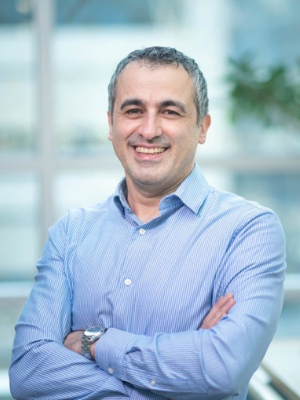
Ali Bashashati
Associate Professor, Departments of Pathology & Urology and the School of Biomedical Engineering, University of British Columbia
Director, AI and Bioinformatics Research, Ovarian Cancer Research Program of BC
Senior Scientist, Vancouver Prostate Center
Vancouver, BC
Dr. Ali Bashashati is an Associate Professor with the Departments of Pathology & Urology as well as the School of Biomedical Engineering at UBC. He is the Director of AI and Bioinformatics Research in the Ovarian Cancer Research Program of BC and a Senior Scientist at the Vancouver Prostate Center. Dr. Bashashati’s research area lies at the interface between computational, engineering and biomedical sciences. He is interested in developing machine-learning algorithms to combine various sources imaging, digital pathology and ‘omics data in the context of cancer. Dr. Bashashati aims to improve pathology efficiency, identify new biomarkers for treatment selection and derive biological insights for various health conditions with major emphasis on cancer. He has published extensively in cancer genomics, bioinformatics and computational biology and his papers have appeared in top-tier journals such as Nature, Nature Genetics and Nature Medicine.

Dr. Julia Burnier, PhD
Associate Professor, Gerald Bronfman Department of Oncology and Department of Pathology
McGill University
Scientist, Cancer Research Program, Research Institute of the McGill University Health Centre (RI-MUHC)
Director, Liquid Biopsy Laboratory
Montréal, QC
Dr. Julia Burnier is an Associate Professor in the Gerald Bronfman Department of Oncology and Department of Pathology at McGill University (Montréal, Canada) and a Scientist at the Research Institute of the McGill University Health Centre (RI-MUHC). She is Director of the Liquid Biopsy laboratory within the Cancer Research Program (CRP) of the RI-MUHC and studies the role of tumor-derived (circulating) molecules in cancer. Using liquid biopsy, she investigates circulating nucleic acids (i.e. ctDNA and CTCs) and tumour-derived extracellular vesicles (EVs) in mediating tumour progression and treatment resistance. Her research program is divided in two main themes: 1) design clinically feasible approaches to detect cancer development and monitor treatment response/resistance through changes in ctDNA (biomarker discovery); 2) investigate how circulating biomarkers contribute to tumour progression and can be used as nanomedicine delivery vehicles (therapeutics). Dr. Burnier is a Fonds de Recherche en Santé Research Scholar, recipient of the Canadian Cancer Society Emerging Scholar Award (2021-2026), and a William Dawson Award recipient (2023-2028).

Arielle Elkrief MD, FRCPC
Clinician-Scientist and Assistant Professor, Department of Oncology
Centre hospitalier de l’Université de Montréal (CHUM)
Montréal, QC
Dr. Arielle Elkrief MD, FRCPC is a clinician-scientist and Assistant Professor in the Department of Oncology at the Centre hospitalier de l’Université de Montréal (CHUM). She was recruited to the CRCHUM in 2023 and directs her research laboratory focused on the gut and tumor microbiome as a biomarker of response to immunotherapy. She is also co-Director of the CHUM Microbiome Centre where she leads microbiome-centered clinical trials combining microbiome interventions such as fecal microbiota transplantation (FMT), prebiotics, and diet. In addition, she contributed to establishing the negative impact of antibiotics on immunotherapy activity in patients with cancer. She was recently awarded the American Society of Clinical Oncology Young Investigator Award and the Society of Immunotherapy of Cancer-Melanoma Research Alliance Women in Melanoma Award.
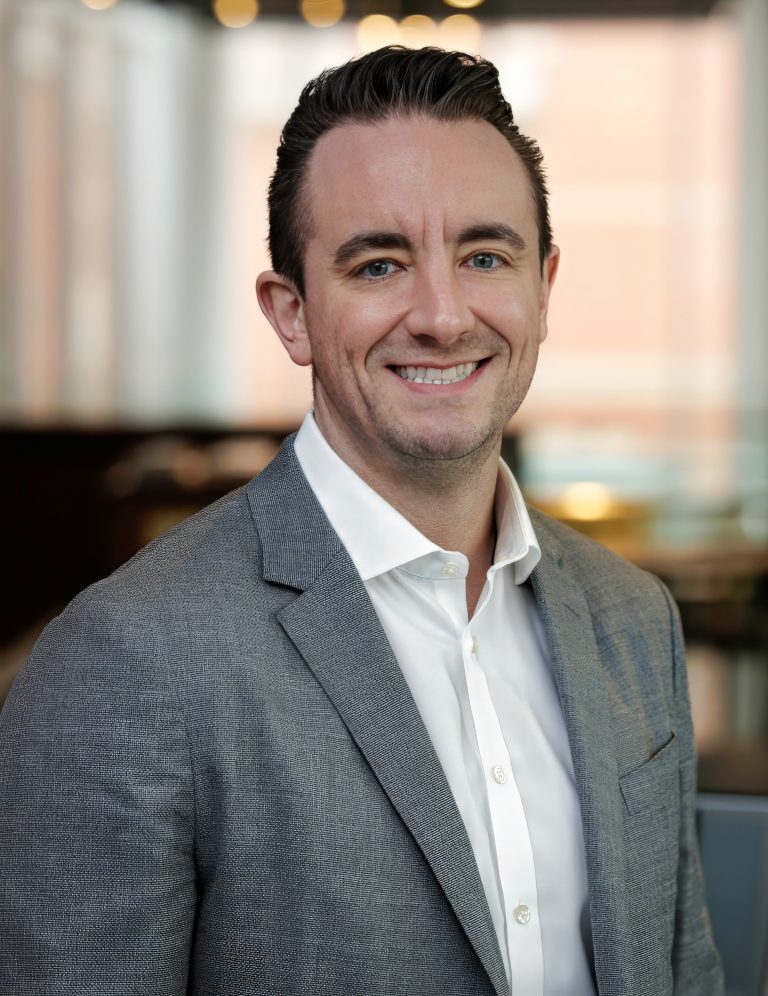
Matthew Frigault, MD
John and Ashley Ranelli Endowed Scholar in Cancer Innovation
Assistant Professor of Medicine, Harvard Medical School
Boston, MA
Matthew Frigault, MD (MGH) is the John and Ashley Ranelli Endowed Scholar in Cancer Innovation and Associate Professor of Medicine at HMS. He is a cellular therapist and bone marrow transplant physician scientist who has extensive preclinical, clinical, and translational research experience involving the use of immune effector cell therapy for hematologic and solid tumor malignancies. His work has focused on high-risk patient populations, rare tumor subtypes and immunomodulatory approaches for toxicity mitigation and augmentation of T cell function. He is also the Clinical Director of the Cellular Immunotherapy Program and oversees the clinical research infrastructure for cell and gene therapy

Thomas F. Gajewski, M.D., Ph.D.
Director, Melanoma Oncology Clinic, University of Chicago
Leader, Immunology and Cancer Program, UChicago Comprehensive Cancer Center
Chicago, IL
Dr. Thomas Gajewski is Director of the Melanoma Oncology Clinic and leader of the Immunology and Cancer Program at the University of Chicago Comprehensive Cancer Center. A University of Chicago–trained physician-scientist, he completed his BS, PhD in Immunology, and MD, followed by residency in Internal Medicine, fellowship in Hematology/Oncology, and post-doctoral training with Dr. Thierry Boon at the Ludwig Institute in Brussels. His research has defined fundamental mechanisms of anti-tumor immunity, including the T cell-inflamed versus non-T cell-inflamed tumor microenvironment, immune resistance pathways such as PD-1/PD-L1 and IDO, oncogenic drivers of T-cell exclusion like Wnt/β-catenin, and the influence of germline genetics and the microbiota on cancer immunity. These insights have driven clinical development of immunotherapies including checkpoint blockade, STING agonists, and microbiota-based interventions.
A leader in the field of cancer immunology, Dr. Gajewski has authored more than 240 manuscripts, delivered over 400 scientific presentations, and held prominent roles including president of the Society for Immunotherapy of Cancer and founding editor of the Journal for Immunotherapy of Cancer. His work has been recognized with major honors, including the William B. Coley Award and the ESMO Immuno-Oncology Award, along with multiple endowed professorships. He has maintained continuous NIH funding for two decades and is the scientific co-founder of Jounce Therapeutics and Pyxis Oncology.

Hani Goodarzi
Associate Professor, UCSF
Core Investigator, The Arc Institute
San Francisco, CA
Dr. Hani Goodarzi is an Arc Core Investigator and Associate Professor at UCSF. His research combines novel discovery platforms and frontier AI models to reveal molecular mechanisms of cancer progression. Dr. Goodarzi has made key scientific contributions at the intersection of AI, RNA biology, and cancer research, and in both diagnostics and therapeutics. His work has been recognized with prestigious awards, including the Vilcek Prize for Creative Promise and the AACR-MPM Transformative Cancer Research Award. Dr. Goodarzi was previously honoured with the Martin and Rose Wachtel Award in Cancer Research and named an American Cancer Society scholar.
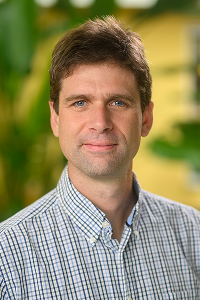
Benjamin Haibe-Kains
Co-Founder, MAQC (Massive Analysis and Quality Control) Society
University Health Network
Toronto, ON
Co-Founder of the MAQC (Massive Analysis and Quality Control) Society, Member of the Scientific Advisory Board of: Consortium de recherche biopharmaceutique (CQDM), Quebec, Canada, Break Through Cancer, Commonwealth Cancer Consortium, United States Canadian Institute of Health Research – Institute of Genetics, Canada, Cancer Grand Challenges, United Kingdom Shriners Children, United States Member of the Board of Directors of AACR International – Canada, The American Association for Cancer Research, United States Head of Data Science for the Structural Genomics Consortium
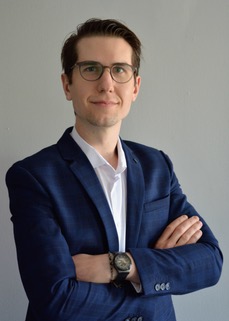
Nicolas Jacquelot, MD
Assistant Professor, University of Calgary
Principal Investigator, Immunophenotyping Program, Riddell Centre for Cancer Immunotherapy
Calgary, AB
Dr. Nicolas Jacquelot is an assistant professor of immunology at the University of Calgary. He completed his PhD in France in 2016, investigating the role of immune cells, particularly T cells, in melanoma prognosis and response to immune checkpoint therapies. From 2017 to 2022, he pursued his postdoctoral training in Australia and Canada, studying the role of innate lymphoid cells (ILCs) in health and diseases, before establishing his own research group at the University of Calgary in 2023. As Principal Investigator and co-leader of the immunophenotyping program at the Riddell Centre for Cancer Immunotherapy, Arnie Charbonneau Cancer Institute, his laboratory focuses on understanding how the immune microenvironment shapes tumour cell behaviour and dictates disease prognosis and treatment efficacy by primarily studying the role of T cells and ILCs on therapy responses and cancer outcomes.
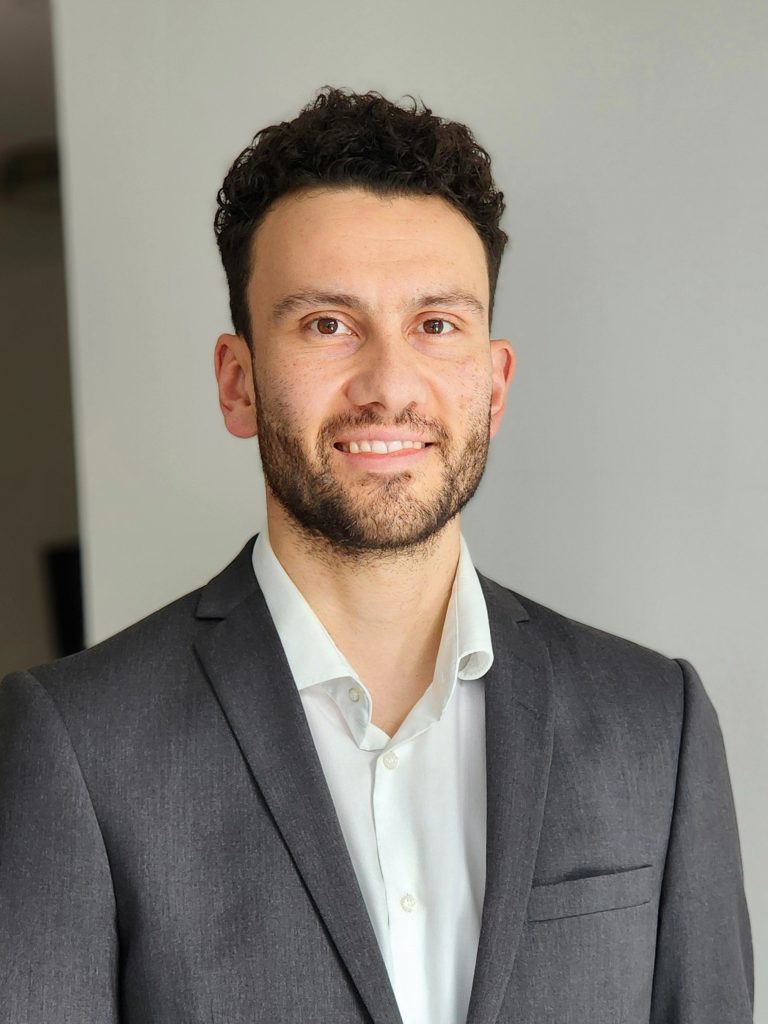
Daniel Khalaf, MD, FRCP
Medical Oncologist, Odette Cancer Centre
Assistant Professor, Temerty Faculty of Medicine, University of Toronto
Associate Scientist, Sunnybrook Research Institute
Toronto, ON
Daniel Khalaf is a Medical Oncologist at Odette Cancer Centre in Toronto, Associate Scientist at the Sunnybrook Research Institute and Assistant Professor at the University of Toronto. He completed a fellowship in Genitourinary Medical Oncology in Vancouver with a focus on prostate cancer research, including biomarker discovery and validation, and patient reported outcomes in clinical trials. His research at Sunnybrook has continued on these themes, with a focus on correlative biomarkers of toxicity and treatment benefit in metastatic prostate cancer. He is very active in phase 1 to 3 trials at Odette Cancer Centre.

Faisal M. Khan, PhD, D(ABHI)
Professor, Cumming School of Medicine,
Director, Hematology Translational Lab, University of Calgary
Associate Clinical Director & Lead, Transplantation Lab-South
Alberta Precision Laboratories
Calgary, AB
Dr. Faisal M. Khan is a Professor at the University of Calgary. In his clinical role, he is the Director of the Hematology Translational lab and the Lead and Clinical Director of the Transplant Lab South (TLS) in Alberta Precision Labs.
Dr. Khan obtained his Ph.D. in Human Molecular Genetics in India in 2006. He completed his postdoctoral training and clinical fellowship at the University of Calgary. Dr. Khan is a certified Diplomat of the American Board of Histocompatibility and Immunogenetics (ABHI).
Dr. Khan has over 21 years of experience in Transplant Immunology, Cancer Genomics, and Histocompatibility and Immunogenetics. Based on his research, Dr. Khan has published over 105 research articles in scientific journals like Science, Blood, Transplantation, and Blood Advances. His research has been recognized by several awards including the American Society of Hematology (ASH) Achievement Awards in 2013, 2015, and 2018; and the American Society for Histocompatibility and Immunogenetics (ASHI) Scholar/Most Clinically Relevant Study awards in 2014, 2019, 2022, and 2024.
Dr. Khan is co-founder and CEO of OncoHelix Inc., an organization that specializes in providing esoteric cancer genomic and immunology testing.
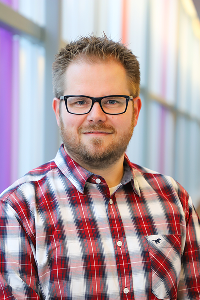
Ramon Klein Geltink
Researcher, University of British Columbia
Vancouver, BC
Ramon grew up in the east of the Netherlands where he got his Bachelor’s degree in Biomedical Sciences. He moved to Memphis, TN, USA where he worked on his PhD project in genetics and molecular biology at St. Jude Children’s Research Hospital. After his PhD he moved to the Max Planck in Freiburg, Germany to work with Dr Erika Pearce, a world leader in immunometabolism to study effects of metabolic pathway changes on the anti-tumour function of T cells. In July 2019 he was recruited to UBC and BC Children’s Hospital Research Institute in Vancouver to start his own program in immunometabolism and continues to work on the puzzle of how metabolic pathways control immune cell differentiation and function in health and disease. He has received a Canadian Cancer Society Early Scholar Award, and a Michael Smith for Health Research BC Scholar Award. Outside of work he likes to spend time in the remote areas of BC and beyond looking for animals to photograph.

Catalina Lopez Correa, MD, PhD
Chief Global Strategy Officer, Genome Canada
Former Chief Scientific Officer, Genome Québec; Genome British Columbia
Executive Director, Canadian COVID-19 Genomics Network (CanCOGeN)
Toronto, ON
Catalina is Chief Global Strategy Officer (CGSO) at Genome Canada. She has dedicated her career to genomics and its transformative applications in life sciences in Canada and internationally. As CSO at Genome Quebec (2008-2015), Genome BC (2015-2019) and Genome Canada (2021-2025) she has been instrumental in developing competitive research and innovation initiatives raising the profile of Canadian genomics on the global stage. As the Executive Director of the Canadian COVID19 Genomics Network (CanCOGeN) she led a $40M initiative to advance the use of genomics to understand and control the COVID19 pandemic. Now, as CGSO of Genome Canada, she is taking genomics to the next level, by advancing the national and global implementation of genomic technologies. Catalina was diagnosed with breast cancer in April 2023. Since her diagnosis, she has been advocating for patients’ access to precision oncology and genomic testing. She has written blogs, participated in podcasts and conferences as a keynote and panelist to increase awareness about the importance of genomics for diagnosis, treatment and prognosis of cancer patients. Catalina’s work has been recognized with several awards. Among others, in 2017 the Canadian Senate 150th Anniversary Medal, in 2013 the Colombian National Order of Merit.
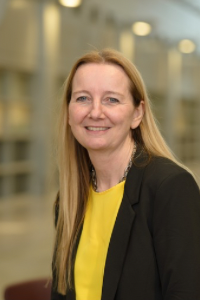
Kathy D. McCoy, PhD
Professor, Department Of Physiology & Pharmacology
Killam Memorial Chair
Director, IMC Germ-free Program
Cumming School of Medicine
University of Calgary
Calgary, AB
Dr. Kathy McCoy is a Professor in the Department of Physiology and Pharmacology, Cumming School of Medicine, member of the Snyder Institute, Scientific Director of the International Microbiome Center, and holds the Killam Memorial Chair at the University of Calgary, Canada. Her research group uses germ-free and gnotobiotic models to investigate the cellular and molecular mechanisms by which the microbiome regulates host immunity and physiology. She is particularly interested in the dynamic interplay between the gut microbiota and the innate and adaptive immune systems. Her research aims to understand how exposure to intestinal microbes, particularly during early life, educates and regulates the mucosal, systemic and neuronal immune systems and how this can affect susceptibility to diseases, such as allergy, autoimmunity, and neurodevelopmental disorders. Her lab also investigates how the microbiome regulates the immune system throughout life with the aim to identify microbial therapies that can be employed to enhance current therapeutic approaches, such as in cancer.
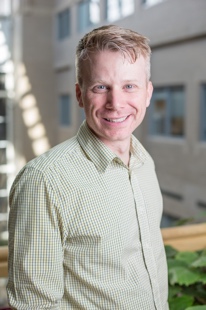
Douglas J. Mahoney, PhD
Associate Professor of Microbiology, Immunology, and Infectious Disease
Associate Director, Basic and Translational Research, Charbonneau Cancer Institute
Director, Riddell Centre for Cancer Immunotherapy
Dr. Mahoney is a translational scientist at Cumming School of Medicine in the University of Calgary with 25 years of experience studying human health and disease. Over the past 15 years, his research has made important contributions to the development of numerous cancer immunotherapies that have been translated into human clinical trials. Currently his lab is focused on developing cell, virus and microbiome-inspired therapeutics to treat various forms of cancer in children, adolescents, and adults. Dr. Mahoney is the founder and Director of the Riddell Centre for Cancer Immunotherapy, which seeks to develop innovative next generation cell and immune therapies for cancer and deliver them to patients in Alberta and beyond. Outside the lab, Doug spends his time with his wife and three children, mostly enjoying the Alberta/BC wilderness.
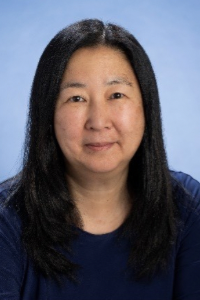
Pamela Ohashi, Ph.D., F.R.S.C., DFAAI
Research Director, Tumor Immunotherapy Program, Princess Margaret Cancer Centre
Chair, Centre for Immunology to Immunotherapy
University Health Network, Senior Scientist
Professor, Department of Immunology
Associate Chair Translational Immunology
University of Toronto
Toronto, ON
Dr. Pamela Ohashi is an internationally recognized leader in immunology and tumor immunity. She received her Ph.D. in Immunology from the University of Toronto in 1988 under Dr. Tak Mak and completed her postdoctoral training at the University of Zurich with Nobel Laureate Dr. Rolf Zinkernagel and Dr. Hans Hengartner, deepening her expertise in T cell biology and immune regulation.
In 1992, she established her own laboratory at UHN’s Princess Margaret (PM) Cancer Centre in Toronto, where she has built an internationally recognized research program investigating T cell activation and function. Her lab investigates the tumor immune microenvironment to better understand and improve anti-tumor immune responses, with the goal of translating fundamental discoveries into effective cancer immunotherapies.
Since 2005, Dr. Ohashi has led the Tumor Immunotherapy Program (TIP) at the PM Cancer Centre, growing it into a comprehensive translational research network. The program integrates advanced cell therapies, state-of-the-art immune profiling, and clinical trials to support the development of novel immune-based treatments.
In 2024, she became the founding Director and Chair of the Centre for Immunology to Immunotherapy (Ci2i) at UHN. Ci2i builds on the foundation of TIP and broadens its scope to include autoimmunity, transplant medicine, and infectious disease. Its mission is to unite clinicians and scientists at UHN to advance immune-based therapies across a range of diseases.
Dr. Ohashi has also shaped the field through leadership roles with the AACR and SITC, and as co-founder of the Canadian Cancer Immunotherapy Consortium, fostering collaboration and innovation in cancer immunotherapy.

Alexandre Pellan Cheng, PhD
Researcher, École de Technologie Supérieure
Montreal, QB
Dr. Alexandre Pellan Cheng (PhD) leads a multidisciplinary liquid biopsy research program that bridges fundamental assay development with translational clinical application. His work focuses on improving cancer detection and treatment monitoring through highly sensitive circulating tumor DNA (ctDNA) analysis. At the discovery level, his group develops novel whole-genome sequencing assays that capture rare tumor-derived mutations in blood. These assays are embedded in investigator-initiated clinical trials to assess their utility in real-world cancer care. His team’s translational efforts aim to implement ctDNA technologies in clinical settings for malignancies where sensitive tools for early detection, treatment response monitoring, and biomarker-guided therapeutic decision-making remain limited.
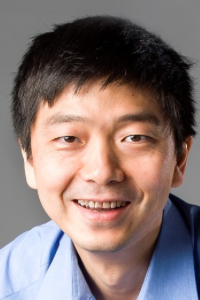
Hoifung Poon
General Manager, Health Futures, Microsoft Research
University of Washington Medical School
Seattle, WA, USA
Hoifung Poon is General Manager at Health Futures in Microsoft Research and an affiliated faculty at the University of Washington Medical School. He leads biomedical AI research and incubation, with the overarching goal of structuring medical data to optimize delivery and accelerate discovery for precision health. His team and collaborators are among the first to explore large language models (LLMs) and multimodal generative AI in health applications, producing popular open-source foundation models such as PubMedBERT, BioGPT, BiomedCLIP, LLaVA-Med, BiomedParse, with tens of millions of downloads. His latest publication in Nature features GigaPath, the first whole-slide digital pathology foundation model pretrained on over one billion pathology image tiles. He has led successful research partnerships with large health providers and life science companies, creating AI systems in daily use for applications such as molecular tumor board and clinical trial matching. His prior work has been recognized with Best Paper Awards from premier AI venues such as NAACL, EMNLP, and UAI, and he was named the “Technology Champion” by the Puget Sound Business Journal in the 2024 Health Care Leadership Awards. He received his PhD in Computer Science and Engineering from the University of Washington, specializing in machine learning and NLP.
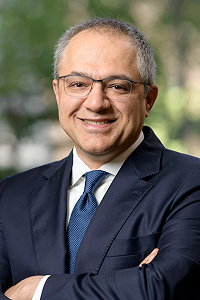
Pedram Razavi, MD, PhD
Assistant Attending, Department of Medicine
Director, Breast Translational Program and Breast Molecular Tumor Board
Director, Liquid Biopsy and Cancer Genomics, Biomarker Development Program
Director, Translational Oncology Partnership Program
Dr. Pedram Razavi is a medical oncologist and physician-scientist at Memorial Sloan Kettering Cancer Center (MSK), specializing in precision oncology for breast cancer. He serves as Director of the Breast Cancer Translational Program and Molecular Tumor Board, and Director of Liquid Biopsy and Cancer Genomics for the MSK Biomarker Development Program. His research focuses on integrative clinicogenomic approaches and circulating tumor biomarkers to characterize breast cancer at both systemic and molecular levels and to expand the clinical utility of liquid biopsy technologies.
Dr. Razavi earned his MD from Tehran University of Medical Sciences and his MPH and PhD in cancer epidemiology from the University of Southern California. He completed a postdoctoral fellowship at the Channing Laboratory, an internal medicine residency at USC, and a medical oncology fellowship at MSK, where he also conducted postdoctoral research in cancer genomics in the lab of Dr. José Baselga.
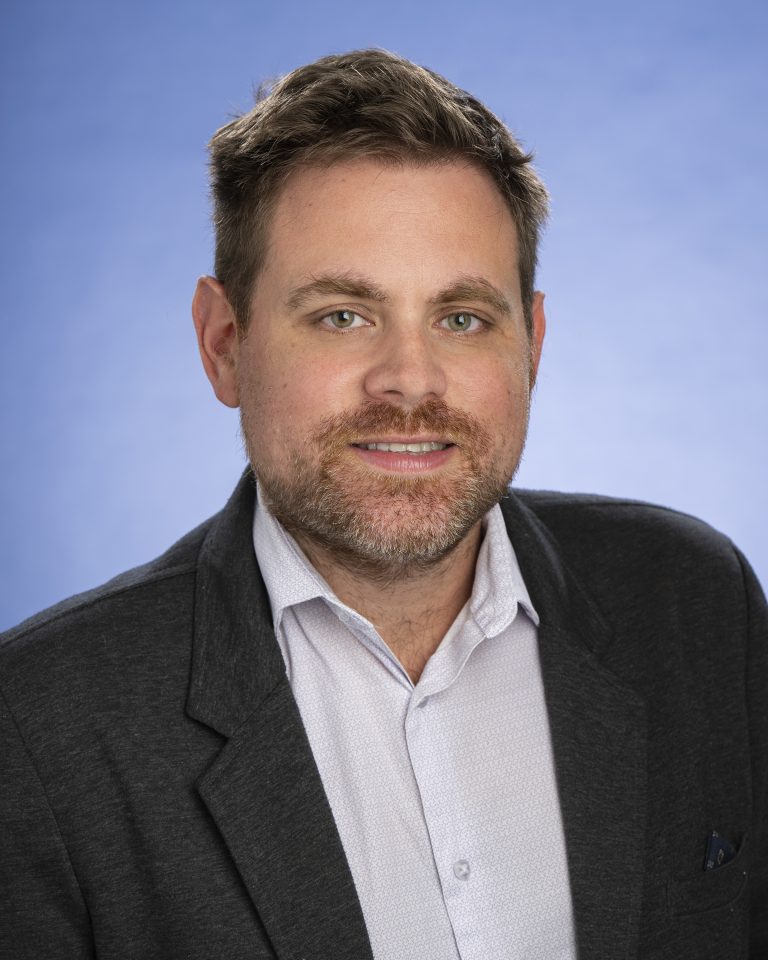
Enrique Sanz Garcia, MD, PhD
Staff Physician, Department of Medical Oncology, Princess Margaret Cancer Centre
Scientific Co-Lead, Marathon of Hope Cancer Centre Network, Princess Margaret Cancer Centre
Research Lead, Precision Medicine, Liquid Biopsy, and Early-Onset GI Cancers
Enrique Sanz Garcia is a medical oncologist and staff physician at the Princess Margaret Cancer Centre, with a clinical focus on head and neck, and gastrointestinal cancers. He was trained in Madrid, Spain, and completed his medical oncology residency at the Vall d’Hebron Oncology Institute in Barcelona. He also completed his PhD in Medicine, focusing on liquid biopsy in colorectal cancer, at the Autonomous University of Barcelona. In 2020, he moved to Toronto for a 3-year fellowship in drug development and the head and neck program. Upon completion, he was appointed as a staff physician at UHN. His main areas of research include precision medicine based on molecular profiling, liquid biopsy, and early-onset cancers of the gastrointestinal tract. He serves also as the scientific co-lead for the Marathon of Hope Cancer Centre Network program at Princess Margaret, chairs the molecular tumor board for this initiative, and co-chairs the working group for the development of a prospective study to bring precision medicine to cancer patients across Canada.
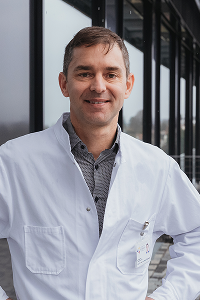
Christoph Stein-Thoeringer
Medical Oncologist,
University Clinic Tuebingen, M3 Research Institute
Tübingen, Germany
During my residency in internal medicine (2011-2016), I became intrigued with basic and translational microbiome sciences. With support from my former supervisor Prof. R. Schmid (Director, Depart. Internal Medicine II, Techn. Univ. Munich – a leading center in gastroenterology in Germany), I established an independent research group investigating the role of the gut microbiome in colitis and functional GI disorders. At the end of my physician – scientist, medical residency, I joined the lab of Prof. M. van den Brink at MSKCC, New York, co-mentored by Prof. E. Pamer, to investigate the role of the gut microbiome in T cell driven immunooncology, an intriguing field in medicine with tremendous hope and future (2016-2019). After three years of a highly successful postdoc with an enormous expansion of my microbiome research skills including gnotobiotic and bioinformatic work, I was recruited in 2019 to the DKFZ as independent research group leader within the research division Microbiome and Cancer headed by Prof. E. Elinav. Through Eran’s mentoring, microbiome research skills were brought to excellence, especially in the field of translational microbiome research. In 2022, I was appointed Professor for Infectious Diseases and Translational Microbiome Research to the University Hospital Tübingen, and continue my research on the gut microbiome, cancer development and immunotherapy and infections in immunocompromised hosts.

Jim Woodgett
President, Terry Fox Research Institute
University of Toronto, Ontario
Toronto, ON
Jim Woodgett is President and Scientific Director of the Terry Fox Research Institute and Senior Investigator at the Lunenfeld-Tanenbaum Research Institute (LTRI). After a PhD in Scotland with Philip Cohen and postdoctoral studies at the Salk Institute under Tony Hunter he established a lab at the Ludwig Institute for Cancer Research, UK where he cloned and characterized genes for regulators of signaling pathways including the stress-activated protein kinases, PKB/Akt and GSK3. He joined the Ontario Cancer Institute in 1992 studying signalling mechanisms underscoring cancer and other diseases, moving to the LTRI in 2005 as Director of Research for 15 years.
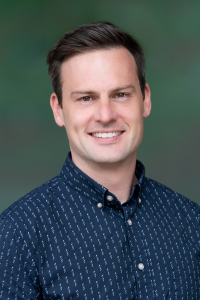
Alex Wyatt, DPhil
Associate Professor, University of British Columbia
Senior Research Scientist, Vancouver Prostate Centre
Senior Scientist, Michael Smith Genome Sciences Centre, BC Cancer
Vancouver, BC
Dr. Alex Wyatt is an associate professor in Urologic Sciences at the University of British Columbia, Canada. He is a senior research scientist at the Vancouver Prostate Centre and a senior scientist at BC Cancer. His research goals are to identify associations between genomic alterations and patient outcomes in metastatic prostate and bladder cancer, and to translate these findings into clinical biomarkers. Dr. Wyatt has developed novel laboratory and computational techniques to study plasma circulating tumour DNA (ctDNA).
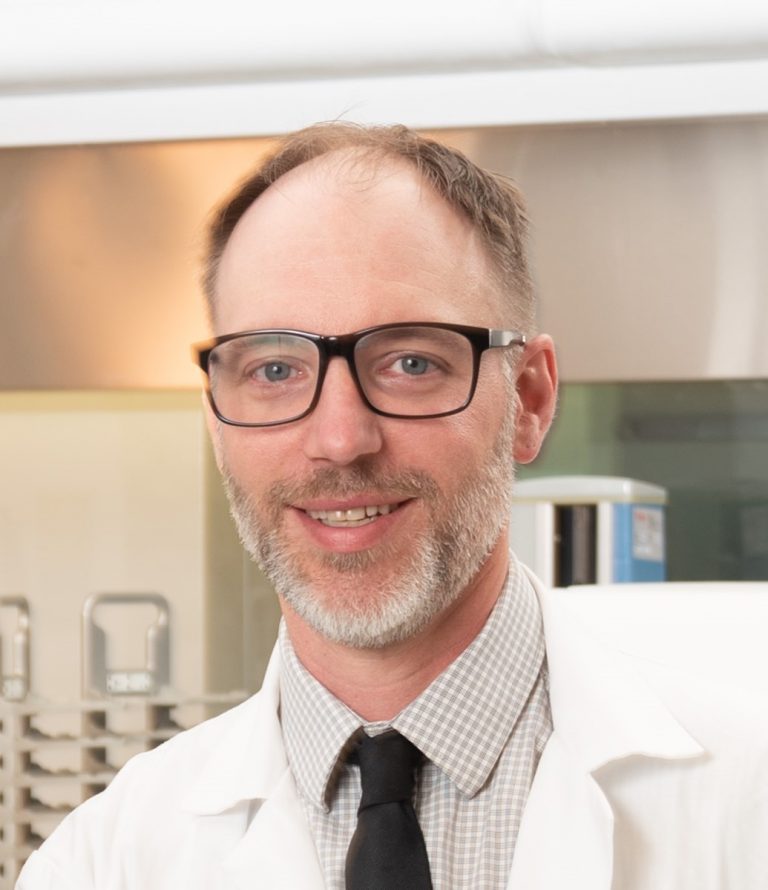
Franz J. Zemp, PhD
Jeff Burns Synthetic Immunology Division Lead
Riddell Center for Cancer Immunotherapy
Adjunct Assistant Professor
Department of Biochemistry & Molecular Biology
University of Calgary
Alberta, Canada
Dr. Franz J. Zemp is an Adjunct Assistant Professor in Biochemistry and Molecular Biology at the University of Calgary, and Lead of the Synthetic Immunology arm Riddell Center for Cancer Immunotherapy. A cancer immunologist and translational scientist, he focuses on immunotherapies for pediatric and young adult cancers, specializing in Chimeric Antigen Receptor (CAR) T cell therapies for rare solid tumors, novel CAR engineering, and oncolytic viral adjuvants.
He holds a BSc in Biology (2006) and MSc in Molecular Biology (2008) from the University of Lethbridge, and a PhD in Medical Science (2015) from the University of Calgary, with postdoctoral training in mucosal and tumor immunology. Dr. Zemp is a Child Health & Wellness Researcher at the Alberta Children’s Hospital Research Institute, and an associate member of the Snyder Institute for Chronic Diseases and Arnie Charbonneau Cancer Institute.
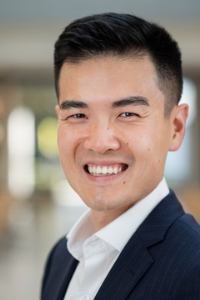
Eric Stutheit-Zhao
Radiation Oncology Resident, University of Toronto
MD/PhD (Bioinformatics), University of British Columbia
Toronto, ON
Dr. Eric Stutheit-Zhao is final-year resident in radiation oncology, and is targeting a career as a clinician-scientist, with an expertise in leveraging large scale pan-omics data, including liquid biopsy data, to personalize cancer treatment and design clinical trials. He completed his MD/PhD in Bioinformatics at the University of British Columbia with Dr. Steven Jones under the Personalized Oncogenomics program. He then completed postdoctoral studies at the Princess Margaret with Dr. Trevor Pugh and Dr. Scott Bratman, as well as at the DKFZ German Cancer Centre with Dr. Stefan Pfister. He has published over 30 peer-reviewed papers, including first-author work in Cancer Discovery, Nature Genetics, and Science Advances, and is a recipient of the CRI Irvington Postdoctoral Fellowship and ASCO Young Investigator Award.




